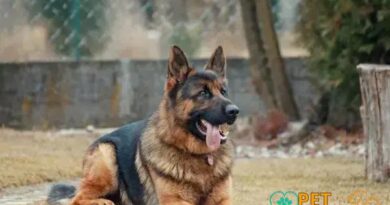O que é funções do cão
What Are the Functions of a Dog?
The functions of a dog extend far beyond companionship; they play crucial roles in various aspects of human life. From serving as loyal pets to assisting in professional fields, dogs have been integral to human society for centuries. Their diverse abilities and traits make them invaluable in numerous settings, showcasing their adaptability and intelligence.
Companionship and Emotional Support
One of the primary functions of a dog is to provide companionship. Dogs have an innate ability to bond with humans, offering emotional support that can significantly enhance mental well-being. Their presence can alleviate feelings of loneliness and anxiety, making them ideal companions for individuals of all ages. This emotional connection fosters a sense of belonging and security, which is essential for a healthy lifestyle.
Working Dogs in Various Professions
Dogs are often employed in various professional roles, showcasing their versatility. From police and military dogs to search and rescue teams, their keen sense of smell and ability to follow commands make them exceptional workers. These dogs undergo rigorous training to perform specific tasks, such as detecting drugs, explosives, or locating missing persons, highlighting their critical functions in public safety and security.
Service Dogs for Individuals with Disabilities
Service dogs are specially trained to assist individuals with disabilities, performing tasks that enhance their quality of life. These dogs can help with mobility, alert to medical emergencies, and provide emotional support. Their functions are tailored to meet the specific needs of their handlers, making them indispensable partners in daily activities. The bond between a service dog and its owner is profound, often leading to increased independence and confidence.
Therapy Dogs in Healthcare Settings
Therapy dogs play a vital role in healthcare environments, providing comfort and companionship to patients. Their presence can reduce stress and anxiety, promote healing, and improve overall patient satisfaction. These dogs are often brought into hospitals, nursing homes, and rehabilitation centers, where they interact with patients, offering a sense of normalcy and joy during challenging times.
Herding and Working Dogs in Agriculture
In agricultural settings, herding and working dogs are essential for managing livestock. Breeds like Border Collies and Australian Shepherds are specifically trained to herd sheep, cattle, and other animals, showcasing their intelligence and strong instincts. These dogs help farmers maintain control over their herds, ensuring safety and efficiency in agricultural operations, which is crucial for food production.
Detection and Search Operations
Detection dogs are trained to identify specific scents, making them invaluable in various search operations. Whether it’s locating drugs, explosives, or even missing persons, these dogs utilize their extraordinary sense of smell to assist law enforcement and rescue teams. Their functions in detection not only enhance public safety but also save lives in critical situations.
Dogs in Sports and Competitions
Many dogs participate in sports and competitions, showcasing their agility, intelligence, and training. Activities like agility trials, obedience competitions, and flyball highlight the athleticism and skills of various breeds. These events not only serve as entertainment but also promote the bond between dogs and their owners, encouraging a healthy lifestyle through physical activity and teamwork.
Canine Roles in Research and Science
Dogs are increasingly being utilized in scientific research, particularly in studies related to human health. Their ability to detect certain diseases through scent has opened new avenues in medical research, including cancer detection and monitoring diabetes. The functions of dogs in this field demonstrate their potential to contribute significantly to advancements in healthcare and disease prevention.
Conclusion: The Multifaceted Roles of Dogs
In summary, the functions of a dog are diverse and multifaceted, encompassing companionship, professional roles, and contributions to health and safety. Their unique abilities and unwavering loyalty make them cherished members of society, fulfilling essential roles that enhance human life in countless ways. Understanding these functions helps us appreciate the profound impact dogs have on our world.


